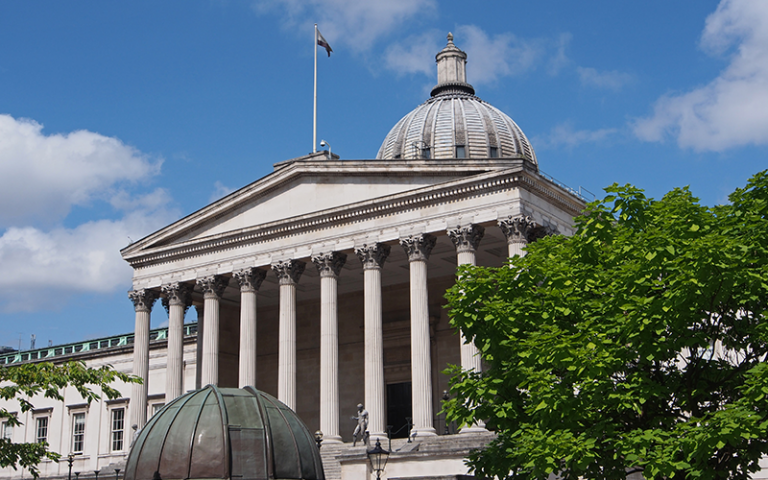UCL launches 39 projects to enhance research culture
12 May 2022
The mix of cross-UCL and faculty projects are supported by more than £1m from Research England to create a healthier and more sustainable research culture at UCL.

UCL has received £1.073m in funding from Research England to launch the Enhancing Research Culture Programme (ERCP) with 15 cross-UCL projects and 24 local faculty projects.
The diverse projects range from creating a Researcher Hub with information and resources to support the UCL research community, to developing new staff training and development materials at faculty level.
The ERCP was launched following a five-month consultation period with UCL’s research community about their experiences and needs related to research culture, which describes the environment in which research happens and is made up of expectations, values, attitudes and behaviours of the people within it.
The consultation identified five priorities for creating a healthier and more sustainable research culture at UCL: (1) Setting clear expectations; (2) Strengthening management capability; (3) Prioritising marginalised/disadvantaged groups; (4) Further embedding existing frameworks such as Open Science and; (5) Increasing accountability.
The 39 ERCP projects are UCL’s first steps towards addressing these priorities and will feed into a longer-term roadmap to enhance UCL’s research culture, which will be co-created with the research community and draw on UCL academic expertise in culture change.
Professor Geraint Rees, incoming Vice-Provost (Research, Innovation & Global Engagement) and Donna Dalrymple, Interim Chief People Officer, are co-sponsoring UCL’s Enhancing Research Culture Programme.
Professor Rees said: “Creating a positive research culture is essential for sustaining our academic excellence. The projects that are underway respond to what our researchers told us was needed, and will allow us to pilot new approaches. We now need to start bringing together these strands of activity to co-create an inclusive change programme with the research community and our research funders.”
 Close
Close

